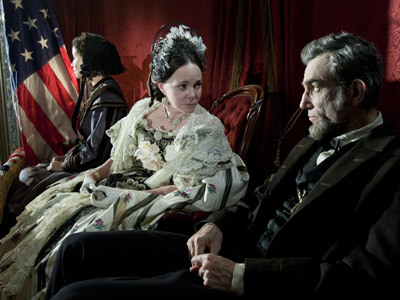Film ‘Lincoln’ inspires Mississippi to officially ban slavery
Share
Explore Our Galleries
Breaking News!
Today's news and culture by Black and other reporters in the Black and mainstream media.
Ways to Support ABHM?
By Sarah Muller, The Last Word with Lawrence O’Donnell, MSNBC
The Oscar-nominated film Lincoln starring Daniel Day-Lewis and Sally Field
details the political maneuvering behind the passage of the 13th Amendment to the Constitution abolishing slavery. But a century and a half after President Abraham Lincoln’s death, Lincoln is still fighting to end slavery.
In 1865, the 13th Amendment was ratified, but not all states made it official; Mississippi got around to ratifying it on Feb. 7th of this year–148 years later–thanks to the help of two concerned men who saw the Steven Spielberg movie.
After watching the film, Dr. Ranjan Batra of the University of Mississippi became inspired to do some research and discovered online that after the Civil War, four states rejected the 13th Amendment, including his home state. Dr. Batra teamed up with his colleague, Ken Sullivan, and the team both helped the state correct this chapter in history.
Dr. Batra explained on The Last Word with Lawrence O’Donnell that his role was to find the right person to do the work. “[Ken] had the connections and his father knew someone who had actually written the bill for ratification in Mississippi and he knew exactly where to find it. All ken had to do was pick up the copy of the bill.”
They brought the error to the attention of Mississippi’s current secretary of state, Delbert Hoseman, who agreed to send the resolution to the federal government.
Read more and see video of the two doctors explaining the actions they took, here.
Read more Breaking News here.










Comments Are Welcome
Note: We moderate submissions in order to create a space for meaningful dialogue, a space where museum visitors – adults and youth –– can exchange informed, thoughtful, and relevant comments that add value to our exhibits.
Racial slurs, personal attacks, obscenity, profanity, and SHOUTING do not meet the above standard. Such comments are posted in the exhibit Hateful Speech. Commercial promotions, impersonations, and incoherent comments likewise fail to meet our goals, so will not be posted. Submissions longer than 120 words will be shortened.
See our full Comments Policy here.